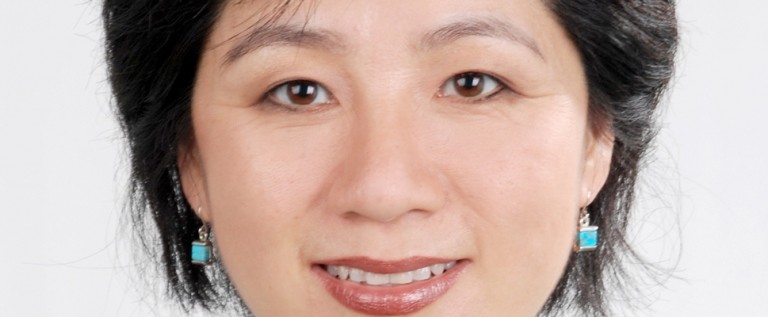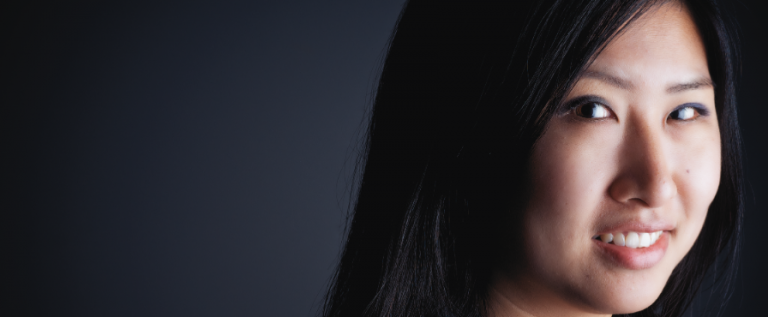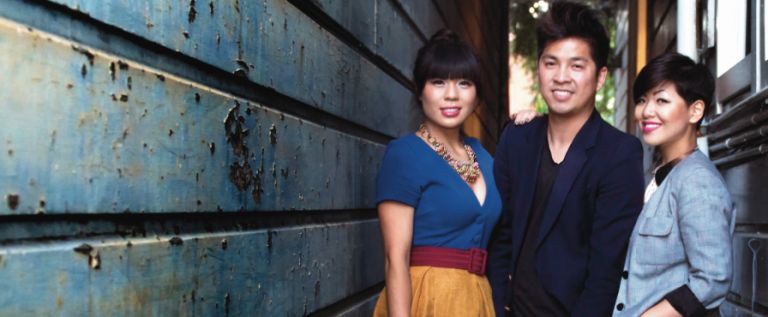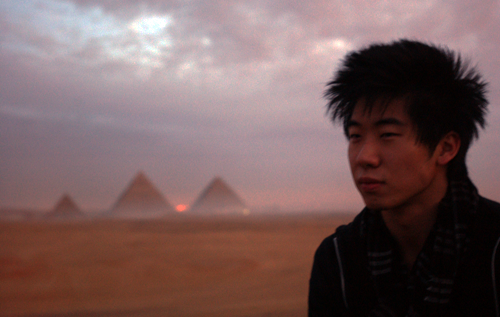Dottie Li

ALIST Columnist Svetlana Kim speaks with Dottie Li about her choices and challenges Managing Director of TransPacific Communications in Washington, D.C.
SK: Dottie, I was impressed by your presentation at the 20th National Association of Professional Asian American Women’s Leadership and Training Conference at the Department of Health and Human Services in Washington, D.C. last May.
We at ALIST Magazine thank you for taking time from your busy schedule to provide us with this opportunity to learn from a top communications expert. Your company provides communications training for foreign-born professionals now in the U.S. and also for Americans doing business in Asia and China. You offer media training to leaders in business and government, and even a few celebrities, and also help Asian Americans who are either students or beginning their careers with cross-cultural communications training to help them succeed.
So, how did you start your own company? What inspired you to be a business-woman?
DL: I was not planning on being a businesswoman per se. I was enjoying my work as a journalist and then as a public relations agency executive and corporate spokesperson.
But then, in the late 1990’s I had a great opportunity to work on some really exciting projects traveling across the country and around the world for the White House, handling media advance assignments. I saw, first-hand, the cultural barriers which have to be overcome in order for people…and nations…to successfully deal with each other. That, combined with my own experience as an immigrant, generated a deep desire to help those in need, using my cross-cultural communication expertise. I felt I could provide a very useful service to improve the communication skills, and thus the lives and careers, of my fellow Asian American immigrants.
SK: You mentioned in your HHS presentation that some of the country’s top scientists, researchers and doctors are foreign-born, and many are taking on executive roles now. What’s your advice to the many of them who are reading this article?
DL: The training we do at TransPacific Communications is tailored to the specific needs of the clients who seek our help. But there is some general advice I can offer regarding cross-cultural communications, and improving your abilities to succeed in this culture.
It’s imperative to invest time and effort to be an effective communicator. That means speaking clearly, using proper grammar, and avoiding cultural landmines. It means writing correctly, getting to the point, and expressing yourself clearly. It means networking broadly and leading with a well-defined plan and purpose.
You must take a hard, clear-eyed look at yourself to get an authentic, honest appraisal of your strong and weak points, to discover what may be missing from your communication tool box. You may have to unlearn some bad habits and relearn how to present yourself in a professional manner. Members of our community often receive advanced degrees and become experts in our specific fields. But then we fail to achieve our career potential because we fail in the communications department. That causes us to miss opportunities for recognition and career advancement. I hate to see talented Asian Americans fail to reach the full potential they are capable of, and miss taking their place at the top of their fields, because they have not overcome cultural and languistic barriers.
SK: Your journey, arriving in America from China, working for the White House, and previously working as a journalist at Voice of America and at C-SPAN, the television networks covering the White House, Congress, the Supreme Court and national politics. It has been a fascinating career. What is the essence of your success in America?
DL: It has been fun, but not always an easy journey. There are two keys, I think. One, is to stick with your goals and, two, is to do things 100-percent all of the time. I have had a goal since I left C-SPAN to be on this side of the media fence to work as a top communications consultant. Along the way, I carefully planned out my career, but also made adjustments to deal with unexpected obstacles or opportunities. I chose assignments and jobs that would fit my goal and tried to build my own path from there. I was very fortunate to find my calling in this career, which is using the power of cross-cultural communications to help my community.
SK: How do you manage to work under tremendous pressure?
DL: I often tell people I thrive in chaos, which may be a trademark characteristic for being a broadcaster and television producer, where you have to deal with last-minute, simultaneous scenarios. You are frequently not given much time to plan. You have to learn to always be thinking a few steps ahead and make sure you have a Plan B and a Plan C ready to go if or when they’re needed. And you have to make sure your team is all on the same page. That’s communication, again. There is rarely a typical day in the news business in Washington, DC. News can break out at any time, and you can’t waste precious time try to figure out how to cope after that happens; you have to be ready in advance. Being completely prepared is the best way to alleviate the sense of pressure, and avoid mistakes.
Working for the White House, I learned that every single detail, no matter how small, must be accounted for. Trust me, when the leader of the free world, the most important single person in the world, is approaching, you want everything to be perfect. Being obsessive about every detail is the only way you can handle that pressure. There’s a certain calm which comes with knowing that every contingency has been accounted for, or, at least, every contingency you can imagine.
You have to take care of your health, especially as stress can be physically debilitating. I exercise, and often have to get up early in the morning on a day off to go to a “boot camp” type of workout, even when I really, really don’t want to. The exercise works off stress and keeps your body healthy. Staying away from junk food is often difficult when you have to eat on the fly, but it’s best to eat simply and stick to healthful foods as much as possible. You will feel and perform better. Some people meditate; prayer is helpful. Find out what works for you because anything that allows you to let accumulated pressure seep out, so it doesn’t explode at the wrong moment, will help you. Sometimes, stepping back for a few minutes can allow you to clear your head and see things with a fresh perspective, to let some new thoughts which had been blocked by all the brain activity going on float to the surface.
SK: You helped make former President Bill Clinton’s domestic and international trips communicate the proper message. What a great honor. Please share a few memories.
DL: There are so many! Of course, the honor of representing my country around the world is the most significant part of the experience. Seeing history and meeting historic figures in government and business around the world, and spending time with interesting citizens and learning about their lives are all vivid memories.
One of the most challenging but memorable events happened in Bangladesh. In 2000, Bill Clinton was the first American president scheduled to visit Bangladesh. I was sent ahead with an advance team to get ready as the big day approached. We spent a number of days working in a remote village outside Dhaka to set the scene. It was one of the poorest places on earth, but the villagers were so welcoming and kind. Then, the evening before the president’s arrival, a sudden and serious security threat caused the trip to the countryside to be canceled. The villagers were crushed, and the Bangladeshi government was disappointed. But then we thought, if the president can’t come to the village, then the village would just have to go to the president.
 My colleagues and I quickly improvised a plan to transport as much of the village and its culture as we could to the safety of the American embassy. My team worked through the night, and by the time President Clinton arrived at the secured embassy the next day, a pretty good representation of the village had been created. Along with the excited villagers on hand, there was a showcase of their vibrantly colorful fabrics draping the embassy courtyard, displayed as a welcoming gesture in lieu of the shaminas that the villagers had built back home. The international media captured the event and sent images around the world of the delighted American president being given a warm and traditional South Asian welcome. Years later, President Clinton told me the security threat came from Osama Bin Laden, which made a helicopter trip over the jungle too dangerous. This was the year before 9/11. But Bin Laden did not win that day.
My colleagues and I quickly improvised a plan to transport as much of the village and its culture as we could to the safety of the American embassy. My team worked through the night, and by the time President Clinton arrived at the secured embassy the next day, a pretty good representation of the village had been created. Along with the excited villagers on hand, there was a showcase of their vibrantly colorful fabrics draping the embassy courtyard, displayed as a welcoming gesture in lieu of the shaminas that the villagers had built back home. The international media captured the event and sent images around the world of the delighted American president being given a warm and traditional South Asian welcome. Years later, President Clinton told me the security threat came from Osama Bin Laden, which made a helicopter trip over the jungle too dangerous. This was the year before 9/11. But Bin Laden did not win that day.
One of the most fascinating assignments I had was to accompany first lady Hillary Clinton during a tour supporting the preservation of a number of historic sites. We visited places like Ellis Island in New York’s harbor, where so many immigrants first saw America, and Thomas Edison’s lab and even Eleanor Roosevelt’s cottage at Hyde Park.
There are also some purely fun memories, like seeing a Rolling Stones concert in Germany during the G-8 Summit there, or visiting the Acropolis at sunset during the president’s trip to Greece, or having a free day during an Asian presidential trip to go snorkeling in the beautiful clear waters of Guam. That almost makes up for countless twenty-hour days.
SK: Your father and two siblings are journalists. And your husband is a journalist. Was it easy for you to discover your passion? At what age did you decide that you will be a journalist?
DL: As a young teenager in China, I secretly listened to VOA’s Mandarin broadcasts. I was fascinated by the reports, and vowed that one day I’d be a VOA broadcaster. I followed my father’s footsteps, first becoming a print reporter in China. Then I came to school in the U.S., and my first job here was as a VOA Mandarin broadcaster.
I still think of myself as a journalist at heart. Just this past year, I was asked to save a D.C. area newspaper, a monthly English-language publication for Asian Americans. The paper was probably about to go under, but I spent six months re-focusing it editorially, building up a new writing staff, and modernizing the layout. We also began the work of revitalizing a stale, underutilized website. It was both exciting and rewarding, if exhausting.
SK: I visited in China in 2008, and was fascinated by its rich culture, good food. I was amused to see Starbucks and McDonalds in Beijing. Today, China is the second largest economy in the world, after the U.S. China’s economy will grow to $123 trillion by 2040.
China is the second-largest market for Starbucks. McDonalds opened it first chain in China in 1990, and China has become its largest market after the U.S. McDonald’s is recruiting 70,000 employees, almost doubling its existing workforce. Starbucks is tripling the number of shops as well as its workforce in China over the next three years.
You train powerful executives in the US and China. So what are some strategies we can learn to respond to the challenges of the global marketplace? How can corporate leaders demonstrate leadership, bring value and best practices for managing both internal and external communications?
DL: Well, this is really one of the core questions, isn’t it? It goes to the heart of cross-cultural communications. The old adage still applies to today’s global market: “When in Rome, do as the Romans do.” I’d like to update that, though, to “Lead Romans to do what you want them to do.” This really boils down to leadership in a cross-cultural setting. Not everyone is going to follow, appreciate or maybe even comprehend the American ways, culture and values. This is when corporations have to invest efforts, resources and energy to navigate what works in local communities, culturally and politically.
Look at this great success story of the American corporate world: Yum! Brands. David Novak is the chairman and CEO. He realized you can’t lead a great organization of any size without getting your people aligned, enthusiastic, and focused relentlessly on the mission. He developed a trademarked program, Taking People With You, which is also the title of his book. It centers around setting big goals, getting people to work together, blowing past your targets, and celebrating both the touchdowns, as well as the first downs — the smaller victories — along the way. Like all great leaders, his entire philosophy and methodology revolves around focusing on making others successful.
 SK: Our readers might be surprised to discover that you are the Voice and the Voice Coach of Rosetta Stone’s Mandarin products. What’s next for you with language training?
SK: Our readers might be surprised to discover that you are the Voice and the Voice Coach of Rosetta Stone’s Mandarin products. What’s next for you with language training?
DL: I’ve been coaching a few diplomats and celebrities to speak what I like to call the perfect Mandarin. Your readers might also be surprised to know there are a few famous Chinese Americans who need to brush up on their ancestral language! We also teach Mandarin at some of Washington’s best schools.
One thing I’d love to do is work with Hollywood film directors and actors. I think it would be great fun to coach the actors whenever a script calls for speaking Mandarin. I think it would also be quite interesting to work as a consultant to television networks to get them to pronounce Asian names and places correctly and also get the proper cultural background and content in both their reporting and their entertainment programming.
SK: What is the “American Dream” to you? Some people say that American dream represents living a better life than the previous generation, and having your children live happy lives. This is especially true among immigrants, because many of them fled war, poverty, and extremely difficult circumstances in their native countries.
DL: I came to America to pursue my childhood dream of becoming a VOA’s broadcaster. I realized that dream and then realized there was much more I wanted to do. America opened my eyes to many more possibilities. I love that so much of my work helps non-native professionals to improve their communications skills so they can be more successful in fulfilling their own “American Dream.”
SK: Who is your hero?
DL: My mother. Now a retired teacher in China, she has lived through war, famine and multiple political battles, becoming the first female gymnast in my province. She graduated from college, suffered from many health issues at a young age, but gave birth and raised three children. She has been an award-winner teacher whose students are in the thousands. She always sacrifices and looks after her family, relying on her faith in God.
SK: What is your motto?
DL: To make this place better than when I found it.
SK: Thank you, Dottie Li.





